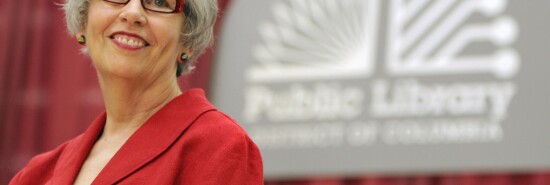
Could we get the ‘banned books’ people to start caring about banned books?
Timothy P. Carney
Video Embed
Did you know that the 1619 Project is a banned book? This might surprise you, given that it has sold hundreds of thousands of copies, has a Hulu original series, and that governments everywhere are paying the author tens of thousands of dollars to speak about the book.
Did you know that The Handmaid’s Tale is also banned? Again, this could be a confusing fact for anyone paying any attention to American media and elite culture over the past seven years.
ATTEMPTED BOOK BANS SURGED IN 2022 AS LEADERS TARGET SEXUAL CONTENT AND CRITICAL RACE THEORY: REPORT
But the 1619 Project and The Handmaid’s Tale are two of the books pictured in this NPR story on banned books or the “banned book” websites to which it links.
Of course, by no ordinary understanding of the word “banned” are these books banned, as evidenced that every book mentioned herein is available at every prestige bookstore, every chain bookstore, and Amazon. What’s going on is that activists have decided to change the meaning of “banned books” to include any book that has been removed from a middle school curriculum or is not stocked in a high school library.
It’s normal that activists would abuse language in order to make their own issue seem more important. It’s unfortunate that this abuse of language is at the hands of people who claim to care about literacy, given that precision in language is a way in which literature can liberate and inform.
It’s also lamentable that so much of the news media credulously adopts the activists’ dishonest language. NPR uncritically repeats the word “ban” more than 50 times in this story about books that obviously everyone can buy, get for free, and take out from public libraries.
Removing rape-filled books from a school library is not “banning them.”
But if we adopt a slightly more stringent definition of the word “ban,” and then search these anti-ban activists and articles, we find glaring omissions: Books that challenge the brand new left-wing ideology on gender are regularly excluded from large public libraries and even Amazon, yet they never get mentioned by the “anti-book-banners.”
You cannot buy Ryan Anderson’s When Harry Became Sally on Amazon. That is a far stricter “book ban” than any of the books mentioned by NPR or pictured in the article.
Many large library systems do not carry Abigail Shrier’s Irreversible Damage.
You might say, “well, that’s not a ban, that’s just a librarian not stocking a book.” That just further shows the narrowness and the hidden ideological agenda of the supposed “anti-book ban” activism.
If these activists and the journalists who cover them want to argue against state government intervention in local schools, they should do so without using the word “banned,” and they should include Ryan Anderson and Abigail Shrier, front and center.
